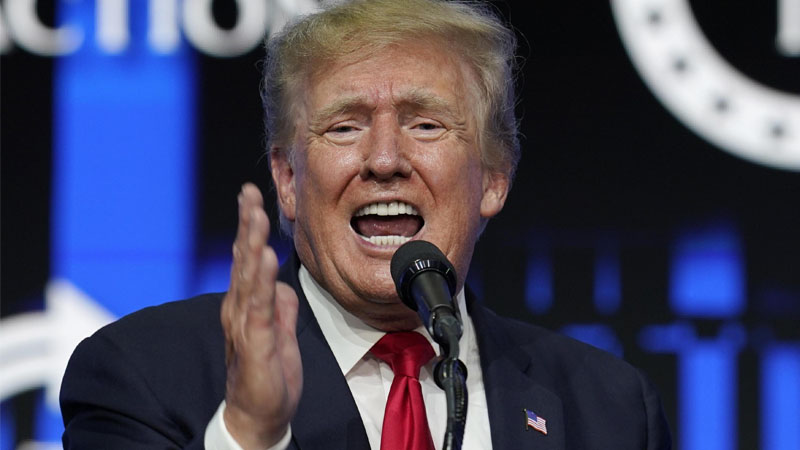In a recent Fox & Friends interview, former President Donald Trump made the extraordinary claim that he never called for the incarceration of former Secretary of State Hillary Clinton during the 2016 campaign. “I didn’t say ‘lock her up,’ but the people said, ‘lock her up, lock her up.’ Then, we won. And I say — and I said pretty openly — I said, ‘all right, come on, just relax, let’s go, we’ve got to make our country great,’” Trump stated.
However, this assertion has been met with skepticism and refutation from various quarters, including a scathing critique from Bess Levin of Vanity Fair, who labeled the claim “absurd” and pointed to numerous instances where Trump did indeed advocate for Clinton’s imprisonment. On the campaign trail, Trump echoed and reinforced chants of “lock her up” from his supporters, signaling a shift from rhetorical flourish to outright endorsement of legal action against Clinton.
Examples of Trump’s past statements include a July 2016 rally where he expressed agreement with the crowd’s chants, saying, “Every time I mention her, everyone screams, ‘Lock her up, lock her up.’ You know what? I’m starting to agree with you.” His stance was further solidified in a tweet from the same year, where he declared, “Hillary Clinton should have been prosecuted and should be in jail.
Instead, she is running for president in what looks like a rigged election.” Additionally, during a June 2016 rally, Trump straightforwardly asserted that Clinton “has to go to jail.” The most direct of these instances occurred during an October 2016 presidential debate when Trump told Clinton directly that, if elected, he would instruct his attorney general to appoint a special prosecutor to look into her situation, ominously concluding that she would “be in jail” if he were in charge of the laws, told Washington Post.
At the heart of the controversy during the 2016 campaign was Clinton’s use of a personal email server for official State Department communications, which was deemed careless and against policy by then-FBI Director James Comey, though not criminal. The revisitation of Trump’s 2016 campaign rhetoric comes as he himself faces federal charges related to the mishandling of highly classified documents at his Mar-a-Lago resort.
Levin suggests that Trump’s recent denial might be an attempt to reshape public perception ahead of his own sentencing on July 11, where he faces a potential prison term. This retrospective denial could be seen as an effort to mitigate the impact of his previous calls for judicial action against a political opponent now that he is in a similar predicament.

